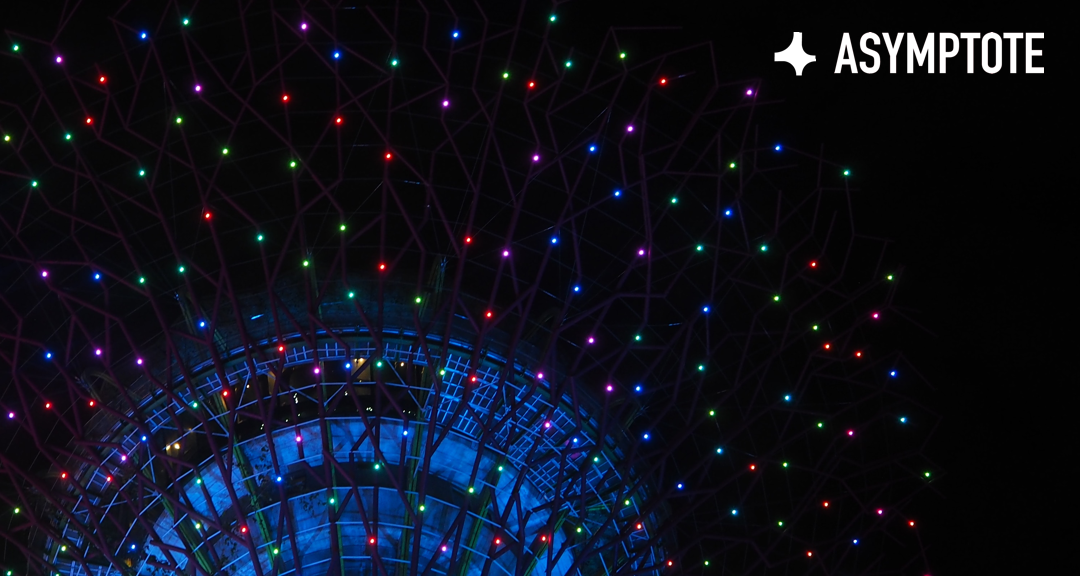Computational poetry is possibly one of the most exciting literary developments of our technology-reliant age. Using algorithms and machines, digital poetry is a product of our modern world, its history stretching only as far back as the mid-20th century. In this essay, Asymptote’s Editor-at-Large for Romania and Moldova, MARGENTO, tells us about an even more radical anthology. “US” Poets Foreign Poets brings together the world of digital poetry with more traditional, page-based poetry, finding connections between wildly different poems, expressed in graphs as well as two languages (English and Romanian). Joining MARGENTO are three contributors to the anthology, as well as the anthology’s publisher, who reflect on the publication and the implications it has for translating, and for making digital and page-based poetry comprehensible and connectable to each other.
What is digital poetry? Simply put, it is poetry that fundamentally relies on digital media for its ‘composition’ and ‘publication.’ What do we mean by ‘fundamentally’? This refers to the fact that the (sub)genre would not be possible, would not exist if it were not for the digital. ‘Traditional’ poetry, also known as ‘page [or page-based] poetry’ could still be written (even if virtually nobody does that anymore) by ‘putting pen to paper,’ whereas digital poetry would simply not be around without digital technology.
But things—and distinctions—are not really as simple as they may seem, and (as is often the case with definitions), when looking closely these definitions actually branch out into both elemental and complex ‘undefineds’ or undefinables. The many questions above are only a crude testimony to all that (and it can only get worse, as you’ll see in a second). What does, for instance, ‘composition’ in our tentative definition above stand for? In digital technology, it has more to do with algorithms and machinic procedures than the imaginative and ‘original,’ or deeply ‘personal,’ human use of language. It is about manipulating a (mathematical and operational) language behind the ‘natural’ language that is thus artificially (re)generated.

